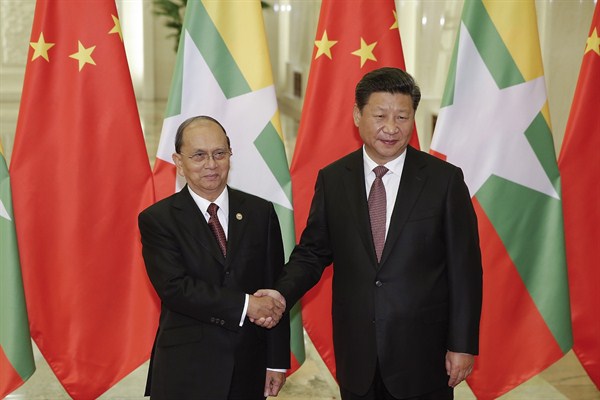YANGON, Myanmar—Beginning in the early 2000s, China’s rise buoyed commodities markets and improved the fortunes of many resource-rich countries. Myanmar was no exception: Bilateral trade has expanded considerably, with China now accounting for approximately 40 percent of Myanmar’s imports and 15 percent of its exports. Although estimates vary significantly, data provided by Myanmar authorities to the World Trade Organization indicate that China, including Hong Kong, made up nearly 60 percent of approved investments in its southwestern neighbor between 2005 and 2012. Cumulative Chinese foreign direct investment in Myanmar has since exceeded $14 billion, with much of that bound for the energy and mining sectors.
Today, however, slackening demand and collapsing credit in the world’s second-largest economy have increased concerns over Myanmar’s resource-dependent economy. In August, writing on Twitter, Burmese-American historian and commentator Thant Myint-U observed that the “biggest impact on Myanmar people’s lives [in the] coming year may come not from elections or peace process but [the] impact of China’s economic downturn.” And in a recent survey conducted by Asia Barometer, most citizens identified the economy as the most serious problem facing Myanmar ahead of November elections.
Some impacts of China’s slowdown are already evident in the energy and mining sectors. Falling energy prices, attributed in part to softening demand in China, have curbed Myanmar’s earnings on natural gas exports despite robust production. The annual Jade and Gem Emporium, which grossed 2.5 billion euros in sales in 2014, saw a sharp decline in participation by Chinese merchants this year. Flagging factory output and construction could also depress exports of tin, which China began purchasing from Myanmar in significant quantities in 2013.

